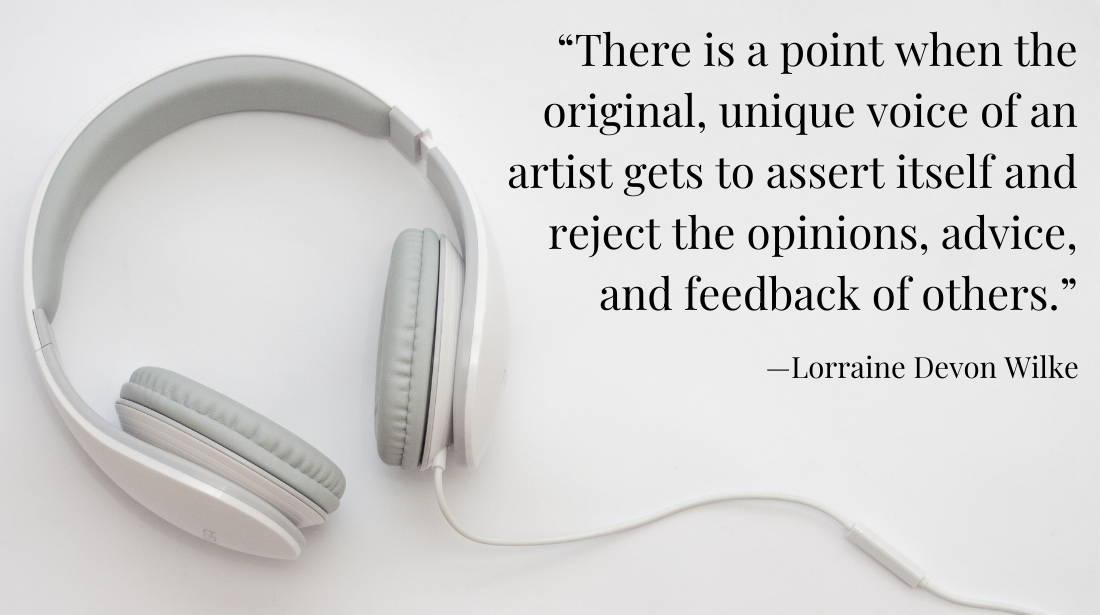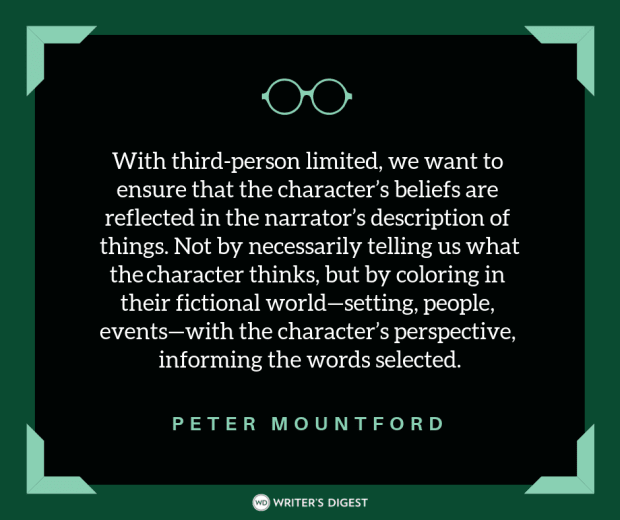Editing Poetry: “Say It or Don’t Say It”
As poet and Pulitzer nominee Clifford Brooks states below, “…just as it is crucial that a writer creates his or her own voice, the way we edit is also a…
As poet and Pulitzer nominee Clifford Brooks states below, “…just as it is crucial that a writer creates his or her own voice, the way we edit is also a matter of self-discovery.” I couldn’t agree more. I’m a true believer in the idea that no two poets create or edit the same way, nor should they, but here Clifford Brooks explains why the process of editing is as vital as getting the words down in the first place.
* * * * *
The process of editing poetry is a bare-knuckle brawl between good grammar and bad habits. Ham-fisting through my first book of verse (two volumes in one) The Draw of Broken Eyes & Whirling Metaphysics was a hard introduction into the relentless expectations of a poetic Fight Club. It was necessarily brutal, but like any art that requires intense, singular, obsessive attention to detail—be it heart surgery, classical guitar, a gun fight set dead-bang, or architecture—this is a process that gets into your DNA. The only other result is failure.
As I write my new book of poetry, Athena Departs, the process is less maddening. It’s still work—hard work—but where there were open wounds the first go-‘round, now it’s iron, intellectual musculature. I flex my whole self tense and then use my previous experience to write more deliberate, self-aware poetry.
I will not quote other writers, artists, or musicians concerning their editing wisdom. If you take this science of poetry seriously, you know all the famous quotes. I got into this turf war late in my 30’s and went without reading other Creators to make sure what I penned was mine without a shred of cross-contamination. In the event that you feel Art breathe through you as a force of spiritual frenzy as well as a financial means to an end, you are well aware the source of that blessing is beyond an academic map. Therefore, editing isn’t going to be found in a book or locked in some wordsmith with more mileage than you. No, just as it is crucial that a writer creates his or her own voice, the way we edit is also a matter of self-discovery.
Editing is essential for the obvious reasons: Yes, you need to get the spelling right. You need to ensure the verbs and nouns make nice. Are your references to historical events/people 100% accurate? If you use a foreign language in your poetry, is it essential, and more importantly, is it you? Be meticulous in your search to ensure that that you are in no conceivable way mimicking a hero. As Nietzsche said, go ahead and kill those bad boys. Heroes are only helpful in comic books. This is your time.
Yet, because we all know what we mean as we read our own work, getting another pair of eyes to give our verse a once-through to verify what we wrote is what we meant is brilliant. Pick someone who is not afraid to get down-and-dirty with us on content, but not be a jackass about it. Finding more than one of these scholars-and-gentlemen is an excellent move. Homonyms have snuck in on me, and punctuation goofs have slipped by me after obsessively compulsively combing over every line of my work. Writers are well known for being OCD about their paper-encased children; it’s worth the extra steps to make sure your infant puts its best foot forward.
After you get the mathematics in place, the next step may convince neighbors that you’re losing a few marbles: This is where I suggest you read and reread every syllable aloud to hear how the sounds marry symphony and the intended place-strong story. I have a neurosis about perfection, but it’s because I absolutely adore this art. I’ve had a lifelong fascination with the sounds I’m able to wring out of words if I get them in just the right order. It’s a game of perfect-pitch angels and sickeningly-flat devils to make sure lines are engineered to create a tangible cadence.
When I walked myself through this process and tore apart my book of poetry, The Draw of Broken Eyes & Whirling Metaphysics, it was the first time I’d ever gone so deep to delve out the truth in words that illuminated the most for a reader, and cut the deepest in me. This process seemed to skin my nerves from the inside out. I promised myself that I would tell the whole truth—all of it—without hiding behind murky imagery and/or cryptic metaphor. Because once we commit ourselves to paper, it’s the poet’s job to tell the truth whether we feel particularly jazzy about it or not. In my opinion, to squirm out of the responsibility of putting on your big boy britches when composing poetry is tantamount to cheating. Verse and song are cathartic. To deliver anything less is like selling snake oils to the suffering. That doesn’t mean it’s an easy job.
You see, I have peers who are more talented with poetry than I, and they were incredible help when I thought I’d pushed the harmonic threshold. When I tried to mask the shame or grief over some event to save face, they shoved me towards absolute disclosure. One editor of mine repeated the phrase, “Say it or don’t say it. If you’re not going to say it, pull the whole poem.” I live by that rule to this day and it has never failed me.
My first professional editor was Larry Fagin. He was a hardnosed mentor that set fire to the course of my career. He taught me that every word counts. Being too verbose, obvious, and long-winded are the earmarks of prose. Personally, I try not to repeat words more than absolutely necessary in one poem. I think it’s a novice mistake of being redundant, and proving a lack of an adequate vocabulary. Exploring vocabulary has brought me to a crystal clear final product that’s able to speak on several levels. For me it’s all about challenging yourself at every turn. Because of Fagin’s tutelage, I now experience more moments of euphoric creativity. I don’t try to stem the flow for few words, but spray the page with every mirage that crosses my mind.
Then, when the poems are on the page and the new process of chopping and slicing begins, I start by plucking out disjointed words, or whole lines, that may not fit the piece at hand. I extracted the melodrama aimed at myself for acts that didn’t need a soap opera to give the full picture. More important, perhaps, is when reading over the poetry I wrote years ago, I began to tear into emotional wounds I thought long dead. Personally, to write an honest poem about something that happened in the past, I mentally/emotionally needed to live there again. Through the process of editing I learned to build a tougher exterior to make sure the memories and events in my book Whirling Metaphysics were as equally accurate today as they were 15 years ago. Still editing this material was far more emotionally vicious that I expected. But I grew more as a poet and as a man in this time than any other before it, or since.
* * * * *
Clifford spoke at great length about the emotional and technical process and pitfalls, but what I included here is pretty spot-on for poets who are about to begin their own editing process. Aim for euphoria, strip away the needless words, and, most of all, “Say it or don’t say it,” because if your work doesn’t say it…what’s the point of writing it, right?
Feel free to post your own thoughts on editing poetry below!
--
Clifford Brooks is a native of Athens, Georgia. Being a “Huck Finn” kind of boy in his early years, and not a fan of public school (or being indoors for that matter), he began to write as an escape. His passion for letters grew into short stories and the humorous non-fiction he became known for in smaller literary circles. Before turning teaching and creative writing into a means of financial survival, Clifford worked as a bookseller, juvenile probation officer, and social worker. His book, The Draw of Broken Eyes & Whirling Metaphysics, has been nominated for a Pulitzer in Poetry, two Pushcart Awards, and garnered him a nomination for Georgia Author of the Year. For more, visit www.cliffbrooks.com.









